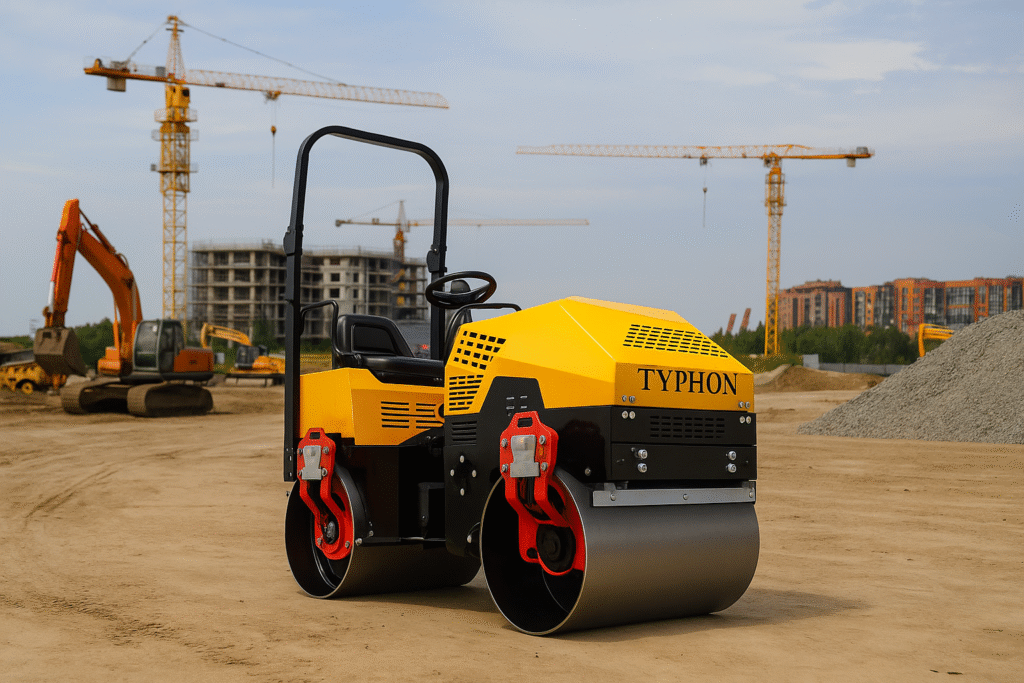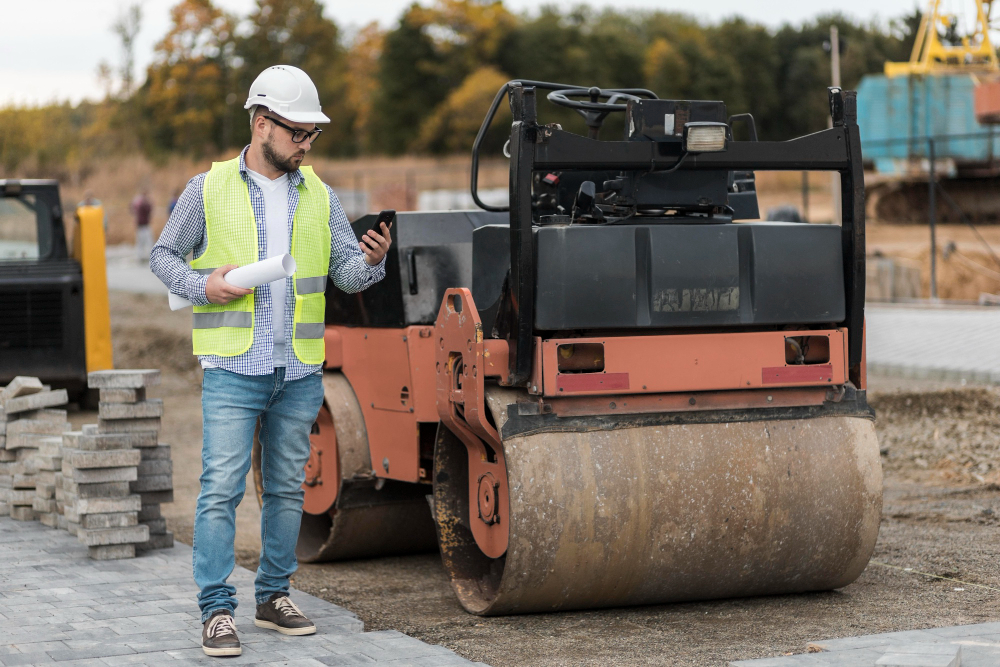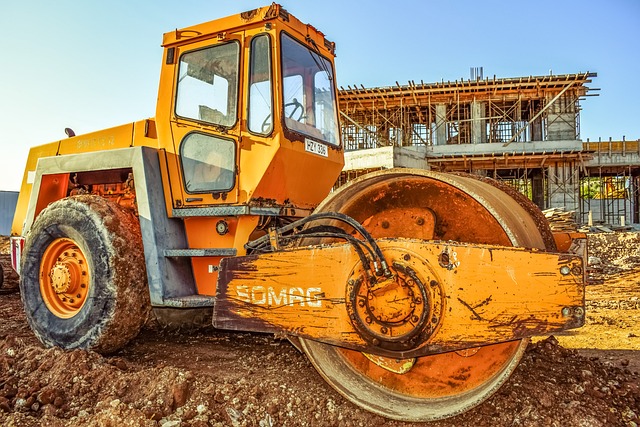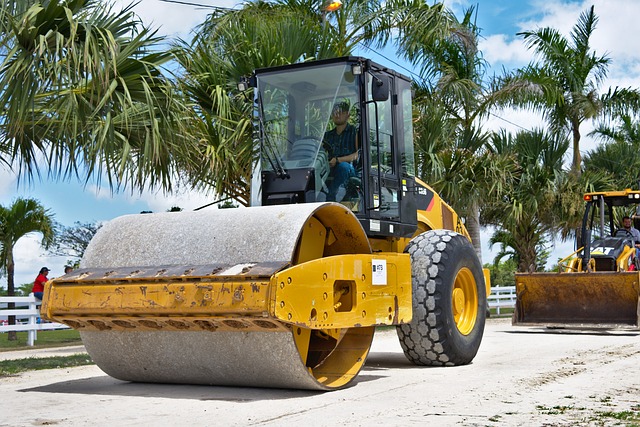What is the price of a roller compactor?
Roller compactors are among the most important equipment in construction and road-making industries. They are used to compress soil, asphalt, and other materials to form a stable and even surface. The roller compactors are actually the most dependable factor that the construction work shall be durable and last a long time whether it is a small residential project or a large-scale infrastructure development. In this guide, we will consider the aspects of the roller compactors, as well as their specifications and finally, the price range. This would help
What is a Roller Compactor?
A roller compactor is an equipment in the construction industry which is used for compressing and compacting a particular material like soil, gravel, sand, and asphalt. This is achieved by a method in which the compactor is pressed through its large cylinders thereby getting rid of any air gaps and finally increasing the density of the material.
Then, the next thing to be done is to place durable structures on the compacted areas that are to be used as the floor and the fair-weather structure. One of the great advantages of roller compactors is that they are highly efficient, environmentally friendly, and very precise, which is why they are indispensable for achieving expected and high-quality results.
Familiarize yourself with the main types of Roller Compactors
There are several types of roller compactors, each of which is capable of handling specific tasks. The most common types among them are:
1. Smooth Drum Rollers
The drum of such a roller is made of steel and is not bumpy, so it can reach all the body parts of the surface and bring about uniform air pressure onto it.
Applications: Ideal for squeezing granular materials like sand, gravel, and asphalt.
Advantages: Gives a good surface finish and has been proven to be very efficient in road construction.
2. Padfoot Rollers:
Padfoot rollers are equipped with a drum that has projecting pads or knobs, which make the soil more compact by penetrating it deeper.
Applications: Most suitable for cohesive soils like clay and silt.
Advantages: Provides a more thorough compaction for materials with a larger water
content.
3. Tandem Rollers
These compactors have a couple of drums, one in front and the other at the back, which are used to provide uniform compaction by rolling in the same direction.
Applications: The most used for compaction of asphalt in road construction.
Advantages: It guarantees the evenness of the compaction and a very smooth finish.
4. Pneumatic Rollers
Pneumatic rollers instead of steel drums use rubber tires thus they provide a kneading action while compacting.
Applications: Best for asphalt and granular material compaction.
Advantages: The higher grip and the possibility to seal surfaces make them the most effective.
5. Combination Rollers
These machines usually have pneumatic tires at the back and a smooth drum at the front
Applications: Used for both asphalt and soil compaction.
Advantages: Provides flexibility and efficiency in different applications (various areas).
6. Soil Compactors
Apart from this machine being used for soil compaction, it is also equipped with the latest features that can help to meet international safety standards. These machines are significantly productive, green, and appear to be the future.
Applications: Ideal for foundations preparation for buildings and roads.
Advantages: Provides the soil with the highest possible density and maximum stability.
Specifications of Roller Compactors
Not only the model and the performance of a compactor that you need to know but also the specifications to be met by it at the construction site as well. Read on for the key technical details that turn a compactor into an indispensable aid for your project:
1. Drum Width: The width of the drum determines the coverage area of the compactor. Wider drums are suitable for large projects, while narrower drums are ideal for confined spaces.
2. Operating Weight: The weight of the machine affects its compaction force. Heavier compactors are more effective for deep compaction.
3. Vibration Frequency: Vibratory compactors use vibrations to enhance compaction. Higher frequencies are better for granular materials, while lower frequencies are suitable for cohesive soils.
4. Engine Power: The performance and efficiency agility of the machine substantially depends on the power capacity of the engine. High horsepower is more suitable for activities that require great force.
5. Travel Speed: The speed of the compactor directly influences its productivity. It is a well-known fact that the faster the machines move, the larger the areas they can reach in an hour.
6. Fuel Efficiency: Compact fuel usage is the primary source of low energy utilizing the compactor. With fuel-efficient compactors, operating costs can be reduced, and (also they) are more environmentally friendly.
7. Additional Features: Modern-day roller compactors have become much more sophisticated providing users with additional capabilities such as GPS navigation, automatic vibration control, and comfort- and productivity-oriented cabins through the application of ergonomic designs.
Price of Roller Compactors
Among others, the cost of a roller compactor is a reflection of the model, make, specifications, brand, and any additional features that give it an identity. The following are the approximate prices for different types of roller compactors:
1. Smooth Drum Rollers
- Price Range: $20,000 to $100,000
- Factors Affect asked: Drum width, engine power, and brand
3. Tandem Rollers
- Price Range: $30,000 to $150,000
- Factors Affecting Price: Dual-drum configuration, advanced features, and brand reputation.
4. Pneumatic Rollers
- Price Range: $40,000 to $200,000
- Factors Affecting Price: Tire configuration, engine power, and additional features.
5. Combination Rollers
- Price Range: $50,000 to $180,000
- Factors Affecting Price: Versatility, drum and tire specifications, and brand.
6. Soil Compactors
- Price Range: $30,000 to $150,000
- Factors Affecting Price: Drum size, vibration frequency, and engine power.
Note: Prices may vary based on the manufacturer, location, and market conditions. For example, JCB offers a range of roller compactors with excellent productivity and precision, catering to various budgets and project requirements.
Factors to Consider When Buying a Roller Compactor
When investing in a roller compactor, the below factors should be the determining ones;
1. Project Requirements
Assess the type of material you’ll be compacting and the size of the project to choose the right type of compactor.
2. Brand Reputation
Stick with brands that are well known and trusted by customers worldwide such as JCB, Caterpillar, or Bomag
3. After-Sales Support
Make sure the manufacturer not only provides the product but also great after-sales service in terms of maintenance as well as spare parts that are available
4. Budget
Set the amount you can spend and then search for and compare different models to pick the best solution within your price range.
5. Environmental Impact
Choose the most fuel-efficient and eco-friendly models that are currently in the market in order to have the greenest construction site.
Conclusion
Road rollers are a necessary part of getting high-quality compaction results in the construction and the road-building field. There are various models available such as smooth drum rollers, padfoot rollers, and tandem rollers, from which you can choose the one that is most compatible with your project. With key components like drum width, operating weight, and engine power in mind, you will know that your machine is going to give the best results with the least effort.
By specifications, the cost of compacting machines can vary considerably due to the diversity of their types, the brand and the capacity of the product. Therefore, regardless of your preference for a cost-saving option or a machine equipped with additional features to enhance efficiency and speed, JCB offers a roller compactor that meets your needs. JCB is one of those companies that produce series of compactors combining productivity, precision, and economic feasibility resulting
Investing in the correct roller compactor can not only result in a better quality of your construction projects but at the same time, it will save time and money in the long run.

